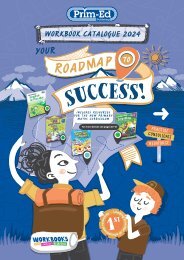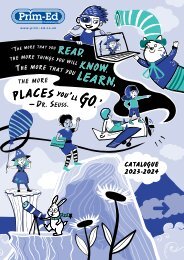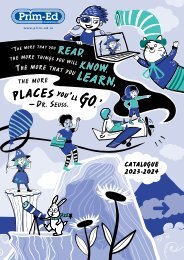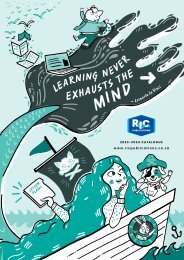20602_AC_Economics_and_buisness_Year_6_Making_choices_about_resources
You also want an ePaper? Increase the reach of your titles
YUMPU automatically turns print PDFs into web optimized ePapers that Google loves.
Resource decisions – 1<br />
Every day, consumers make decisions <strong>and</strong> trade-offs concerned with fulfilling their needs <strong>and</strong><br />
wants. Economists would say while consumers’ needs can be satisfied, their wants are unlimited.<br />
In other words, we are never completely satisfied with what we have (not for long, anyway!). The<br />
problem is that while our wants are unlimited, the <strong>resources</strong> we use to fulfil them are not. When<br />
you think of the word resource, you might think of things you can see <strong>and</strong> touch. These might<br />
include natural <strong>resources</strong> such as l<strong>and</strong>, water <strong>and</strong> minerals, capital <strong>resources</strong> such as machinery,<br />
tools <strong>and</strong> buildings, <strong>and</strong> human <strong>resources</strong> (the work, skills <strong>and</strong> abilities of people). But <strong>resources</strong><br />
can also refer to other things we use to achieve or acquire something. For example, when you<br />
need to make a decision <strong>about</strong> whether to spend 30 minutes playing with your dog or doing<br />
music practice, the resource in question is your time. Other examples of <strong>resources</strong> that we use<br />
every day are money <strong>and</strong> information.<br />
How can we make good decisions <strong>about</strong> how to use or spend <strong>resources</strong>? You might consider:<br />
• deciding on priorities<br />
for example, ‘I have decided to spend an hour helping out at my school’s cake stall rather than<br />
going to the movies because extra help is needed’.<br />
• considering the opportunity cost<br />
for example, ‘If I buy this book, I won’t have enough money to buy that toy’.<br />
• identifying what can be satisfied with <strong>resources</strong> already available<br />
for example, ‘Instead of buying a new bike, I could fix up my old bike for half the money’.<br />
These basic methods of making personal <strong>choices</strong> <strong>about</strong> using limited <strong>resources</strong> are also used by<br />
businesses <strong>and</strong> organisations, including governments. In this case, the consequences of using<br />
limited <strong>resources</strong> can be far-reaching <strong>and</strong> grave. For example:<br />
• A local council needs to decide whether it should allow a bigchain<br />
supermarket to be built. The new supermarket could create<br />
new jobs for townspeople but the trade-off is that building the<br />
supermarket means destroying native bushl<strong>and</strong>. This could be a<br />
habitat for wildlife or be of special significance to different groups<br />
of people.<br />
• A state government department needs to decide whether to use a<br />
sum of money to improve either an aged-care facility or a hospital.<br />
The decision could have serious consequences for the people who<br />
miss out on the funding, such as residents, patients <strong>and</strong> staff.<br />
Allocating <strong>and</strong> using limited <strong>resources</strong> at a business or government level involves many difficult<br />
trade-offs—<strong>and</strong> these can evoke passionate responses from the community. Perhaps you can<br />
think of some examples you have seen in the news.<br />
R.I.C. Publications ® www.ricpublications.com.au Australian Curriculum <strong>Economics</strong> <strong>and</strong> business (<strong>Year</strong> 6) 11


















